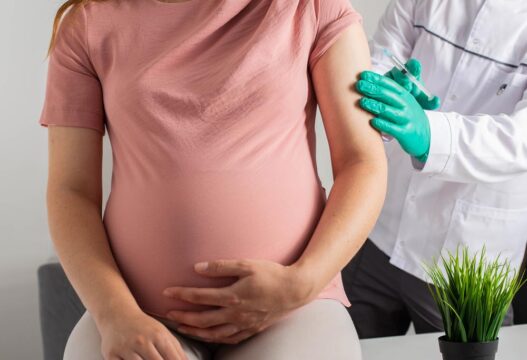Advertisment
What the papers say – weekly digest (10/11/23)

Your weekly digest of the top healthcare stories, covering news published from 06/10/2023 – 10/11/2023.
Daily Express
Thousands of women could be spared pain and anxiety with a womb cancer test that cuts the need for further procedures. The test, using a vaginal swab, is more accurate than current transvaginal ultrasounds. If the scan shows a thickened womb lining, women are referred for tests – which involves a light and camera being threaded through the cervix to capture images, and can be painful. Many women also undergo further tests, such as a biopsy. And as womb lining thickness fluctuates in the menstrual cycle, many are referred unnecessarily. But a study in The Lancet Oncology shows the WID-qEC test detects who needs further checks. Athena Lamnisos, chief executive of the Eve Appeal charity, which part-funded the study, said sparing women needless tests and speeding up diagnosis is a ‘’very welcome progress’’.
A charity has sounded an urgent warning over the standard of care for patients with the most complex mental health needs. Mind is urging ministers to give vulnerable people stronger rights in Tuesday’s King Speech. It follows claims by patients that they were placed in ‘’brutal’’, unsafe mental health rehabilitation units, with untrained and ‘’careless’’ staff. Mind says the much-delayed Mental Health Bill is vital to improve care service for vulnerable patients. The charity’s chief Dr Sarah Hughes said the Bill will ‘’finally strengthen the rights of people who are sectioned under the Mental Health Act’’. The draft Bill was introduced last year to reform the original 1983 Act, but its momentum has since slowed.
More premature babies born at 22 weeks are surviving with a three-fold increase in those receiving life-saving care, research suggests. Previously, it was recommended that only babies born at 23 weeks or later were given treatment to keep them alive. But updated guidance said ‘’survival-focused care’’ – such as respiratory support – should be an option for babies at 22 weeks’ gestation after an assessment of the risks and discussion with parents. Although survival at this age remains low, the latest study published in the journal BMJ Medicine found more babies than previously were surviving to be discharged from hospital and more were receiving treatment. Once babies get past 22 weeks, their chances increase week-by-week. The study looked at data following guidelines introduced in 2019 from the British Association of Perinatal Medicine.
A list of shocking and inappropriate comments faced by young cancer patients has been revealed as part of a new campaign. ‘’How long do you have left?’’ and ‘’my dog died of cancer’’ were among the remarks recorded by Teenage Cancer Trust. Teens and young adults have shared their experiences with the charity for its What Not To Say campaign. The trust is highlighting topics to avoid, including asking when someone is going to die, talking about relatives that died of cancer or speculating about how a person first developed the disease. Other no-go topics include talking about how a patient’s appearance has changed or whether they wear a wig, and telling young patients they are brave. A survey for the charity found saying nothing could also be hurtful, with 55% of young sufferers finding that some friends did not contact them as often after their diagnosis.
More than four in 10 men who seek help after a separation, divorce or family breakdown have had suicidal thoughts, researchers have warned. The University of West London’s Lost Dads project found it applied to 41.9% of males who approach support services. This may have a key link to suicide being the leading case of death for men under 50. The study explores family breakdown, court involvement and mental health issues. The project has made a number of recommendations, including a rethink of co-parenting arrangements, ahead of International Men’s Day on November 19. The report, by applied psychology professor Dr Ben Hine and funded by the Woodward Charitable Trust, analysed data on more than 1,000 men seeking help from charities. The recommendations include the idea of triage for urgent intervention and care, for fathers and the family as a whole, following breakdown. Another is to reform the family courts system, removing adversarial and acrimonious elements of separation.
People are being encouraged to get outside for some fresh air after a study revealed we spend just 32 minutes in nature a day. Despite its mood-boosting benefits, more than half of us have little time for the great outdoors. And a quarter say it is harder to connect with nature than it was 10 years ago, with city living and built-up areas to blame. Gabrielle Dullaart, from the Flower Council of Holland – which carried out the study – said: ‘’Spending time in nature, even for a short while, is like hitting the ‘reset’ button for your mind and soul.’’
Daily Telegraph
A diet of takeaways and ready meals means those in their 50s are now the generation most likely to have high cholesterol, experts have said. A national programme to improve detection and prevention of diseases shows that those in midlife are now the most likely to have the condition, which increases the risk of heart attacks and strokes. The chance of high cholesterol has long been said to rise naturally with age, normally peaking for those in their 60s and 70s. But experts said the findings, from a mass study involving the NHS, suggest that the unhealthy lifestyles of a generation that relies far more on convenience food and deliveries than its predecessors are reaping deadly consequences. The national research programme, Our Future Health, is being rolled out at high street chemists and aims to improve detection and prevention of diseases. The scheme, which will announce today (Monday) that it has recruited one million volunteers, offers free blood pressure and cholesterol checks, with participants giving permission for their DNA and blood samples to be used in research.
Scientists are developing the world’s first lateral flow test to detect brain tumours. The aim is to create a simple test that patients can use at home, similar to those used during the Covid-19 pandemic. It will target aggressive, recurring tumours that lead to almost 200,000 deaths a year globally. Although it can sometimes be inevitable that tumours will recur following initial treatment, the unpredictable timing of the recurrence makes them difficult to detect early, leading to poor prognosis. The researchers say the new test, which would work via a finger prick, could improve the lives of tens of thousands of people across the world. It could also significantly reduce the burden on healthcare systems by reducing the need for MRI scans and providing a cost-effective alternative to some clinic appointments. A team at Nottingham Trent University is leading the work, funded by the Medical Research Council, and working with the University of Sheffield.
More than 150,000 adults and children with type 1 diabetes will be eligible to access ‘’life changing’’ technology on the NHS. People in England and Wales will get a wearable device called a hybrid closed loop system if their diabetes is not adequately controlled by their current pump or glucose monitor. The device – also known as an artificial pancreas – is better at keeping blood sugar levels within a healthy range, cutting down the risk of complications such as disabling hypoglycaemia, strokes and heart attacks. All children and young people, women who are pregnant or planning a pregnancy, and those already with an insulin pump will be first in line as part of a five-year roll-out plan.
Slowing the body’s biological ageing process may reduce the risk of dementia, a study has suggested.Traditionally, researchers rely on chronological age – the number of years a person has been alive – as a rough measure of biological age. But because people age at different rates, chronological age is not the most precise measure, experts suggest. Someone whose biological age was five years higher than their actual age had a 40 per cent greater risk of developing vascular dementia or suffering a stroke, the study found. The Swedish research study was published in the Journal of Neurology, Neurosurgery and Psychiatry.
British women are the worst in the developed world for binge drinking, international data show. Research by the Organisation for Economic Co-operation and Development (OECD) suggests that the rise of ‘’wine o’clock’’ has permeated the United Kingdom in ways not seen elsewhere. The figures show 26 per cent of women in Britain report ‘’heavy episodic drinking’’ – more than twice the OECD average of 12 per cent. Just 2 per cent of women in Italy and 4 per cent of those in Spain reported such habits, along with 12 per cent of those in France, the study of 29 countries found.
Vapes could be taxed to discourage non-smokers, especially the young, from picking up the habit. Government documents released to accompany the King’s Speech confirm that ministers are ‘’exploring a new duty on vapes’’ as part of its legislation for a phased ban on cigarette sales. The move would be likely to drive up vape prices, potentially putting off young Britons from vaping. However, critics have sounded the alarm about whether the move could dissuade tobacco smokers from making the switch to vapes, which is considered a healthier option than smoking. Emergence of the potential tax rise comes as a large number of Tory back-benchers push for tax cuts in the Autumn Statement later this month, putting political pressure on the Treasury. The new law will bring in a phased ban on cigarette sales which means people aged 14 this year can never legally buy cigarettes. Disposable vape sales could also be restricted, with a ban being considered.
The Guardian
Fertility patients are being forced to destroy embryos because they cannot afford to transfer or store them during the cost of living crisis, experts have said. Catherine Hill, Fertility Network UK’s head of policy and public affairs, spoke of a ‘’dire situation for fertility patients’’ who struggled to get help on the NHS and were then forced to turn to the expensive private sector. Hill said rising inflation had made it much harder for couples ‘’racking up mountains of debt’’ and that patients were reporting getting to the point where they could not afford to continue to pay for treatment. A survey by Fertility Network UK of almost 200 patients found 95% were experiencing or had experienced financial worries in relation to fertility treatment. For 92%, these problems were being or had been exacerbated by the cost of living crisis. Half of the respondents said the combination of the cost of living crisis, the lack of NHS-funded help, and the high cost of private care meant they were unable to move forward with fertility treatment. Nearly a quarter were delaying or cancelling treatment.
Almost 300,000 women at higher risk of breast cancer are being given access to a drug that can halve their risk of getting it in a ‘’major step forward’’ in the fight against the disease. An estimated 289,000 women in England who are at moderate or high risk of breast cancer will from today be able to take the tablet to try to stop it from developing, NHS bosses said. The drug, anastrozole, is being made available to women who are in greater danger because they have been through the menopause and have a major family history of Britain’s commonest form of cancer. It displays ‘’remarkable’’ potential to reduce the number of them who go on to develop the disease, the head of the NHS said. Every year around 56,000 women in the UK are diagnosed with breast cancer – about 150 a day. While survival rates have improved, it still claims about 11,500 lives.
Blood tests for Alzheimer’s could be available on the NHS within five years, leading to faster, wider diagnoses and earlier treatment. The country’s two leading dementia charities are funding a £5 million study to bring already-developed blood tests ‘’the final mile’’ into clinical use. Dr Fiona Carragher, from the Alzheimer’s Society said that this would tackle the heartbreaking struggles faced by families in getting a diagnosis, and help to prepare the way for new treatments, which rely on early detection. Most people are diagnosed with Alzheimer’s after experiencing memory difficulties and going to their GP. They are then referred to a memory clinic where cognitive tests are performed. For almost all of those who do receive a diagnosis, it will come through a patchwork of different assessments. Currently the only specialist tests are spinal lumbar punctures or PET scans, but they are expensive and difficult to implement. The UK has just one PET scanner for every two million people.
Scientists have listed eight health measures that can slow the body’s ageing process. Keeping body weight, blood sugar, cholesterol and blood pressure in check while maintaining healthy sleep and eating regimes, doing regular physical activity and not smoking may slow the ageing process by about six years, US experts say. A study has suggested that following these measures promotes good heart health, which in turn may slow the pace of biological ageing. The findings, based on data from more than 6,500 adults with an average age of 47, are being presented at the American Heart Association (AHA) Scientific Sessions conference in Philadelphia. Researchers said people with the best cardiovascular health were about six years younger biologically than their actual age.
The first patient to receive a spinal implant to treat advanced Parkinson’s disease has described experiencing ‘’a rebirth’’ after the treatment allowed him to walk again without falling over. Marc, 63, from Bordeaux, France, was diagnosed with the degenerative disease more than 20 years ago and had developed severe mobility problems, including balance impairments and freezing of gait. After receiving the implant, which aims to restore normal signalling to the leg muscles from the spine, he has been able to walk more normally and regained his independence. The implant is yet to be tested in a full clinical trial. But the Swiss team behind it, who have a longstanding programme to develop brain-machine interfaces to overcome paralysis, hope that their technology could offer an entirely new approach to treating movement deficits in those with Parkinson’s disease. ‘’It is impressive to see how by electrically stimulating the spinal cord in a target manner, in the same way as we have done with paraplegic patients, we can correct walking disorders caused by Parkinson’s disease,’’ said Jocelyne Bloch, neurosurgeon and professor at the CHUV Lausanne University hospital, who co-led the work.
Three in five foreign doctors in the NHS face ‘’racist microaggresions’’ at work, such as patients refusing to be treated by them or doubting their abilities because of their skin colour. The widespread ‘’thinly veiled, everyday instances of racism at work’’ experienced by medics trained overseas has been uncovered by a survey of more than 2,000 UK doctors and dentists. Almost three in five said they had encountered such behaviour, from colleagues as well as patients, although most did not report it because they thought no action would be taken. The findings have raised fears that international medical graduates may choose not to work in the NHS, which is increasingly reliant on their skills given the shortage of doctors. A GMC spokesperson said that while such incidents were ‘’wholly unacceptable’’, eradicating them was ‘’a very real challenge’’.
A Kenyan pharmaceutical company has become the first manufacturer in Africa to receive the World Health Organization (WHO) quality guarantee for a lifesaving malaria drug. Sulfadoxine-pyrimethamine plus amodiaquine (SPAQ) is frequently used to prevent seasonal malaria in children during months of peak transmission periods such as rainy seasons. Previously, demand for drugs such as SPAQ in Africa has been met through the importation of generic versions. Some of the barriers to quality local production of drugs include high operation costs, inadequate technical expertise, lack of investment in the industry, and drug regulation and quality issues. Falsified or substandard antimalarials are estimated to cause up to 116,000 deaths in sub-Saharan Africa each year. Approval from WHO, indicating that a company’s manufacturing processes and quality control meet international standards, can make it easier for companies to enter new markets and attract the biggest buyers of such treatments, including large donor-driven organisations. Local production and equitable distribution of drugs will speed up efforts to eliminate malaria, said the research group Medicines for Malaria Venture (MMV).
Whether it is the story of Peter Piper and his pickled peppers or a woman selling sea shells on the seashore, tongue-twisters tackled when sober can sound different after a drink. Now researchers believe such changes, in particular those relating to pitch and frequency, could be used to alert people to how drunk they are. Dr Brian Suffoletto, the lead author of a study from Stanford University, said the approach could have various applications. ‘’The most obvious one is as a form of ignition lock on cars which would not allow someone to start their car unless they could pass the ‘voice challenge’, which could be used in certain high-risk workplaces like school bus driver or heavy machine operator to ensure public safety… Another could be in restaurants or bars so a bartender can know when to cut someone off’’. Writing in the Journal of Studies on Alcohol and Drugs, Suffoletto and colleagues have reported how 18 adults aged 21 and over were initially recorded reciting a tongue-twister. Each participant was then given a large, weight-based dose of alcohol – enough to intoxicate them – and subsequently asked to recite a different tongue-twister each hour, up to seven hours after consumption. The results suggested the voice analysis predicted alcohol intoxication with 98% accuracy, with intoxication defined as a breath alcohol concentration equal or more than 0.08% – the legal blood alcohol limit in the US for driving.
The Times
Patients are being forced to seek private treatment and face an ‘’extremely dire situation’’ this winter, the head of the Patients Association has warned. Rachel Power said she feared a repeat of last winter’s problems, when patients waited hours for ambulances as the vehicles queued outside A&E departments, and thousands of people were stuck in hospital because of a lack of community care.There has been little respite since, and problems that would once have been headline news have become normalised, Power said. At the end of August there were 7.8 million patients on NHS waiting lists for hospital care, a figure that is likely to rise again when figures for September are released next week. The Patients Association was established 60 years ago to fight for patients amid the thalidomide scandal. It now campaigns for improvements in health and social care for patients and runs a telephone helpline and website where people can seek information about the system. Last month the Care Quality Commission watchdog warned of a risk of ‘’a two-tier system of healthcare, with people who cannot afford to pay waiting longer for care’’.
Hundreds of thousands of patients face treatment delays as NHS England scales back waiting-list targets, after its £1 billion bailout request was rejected. About £500 million is being diverted from existing budgets to cover the cost of doctors’ strikes, with efforts to modernise outdated computer systems and fix dilapidated buildings expected to suffer along with routine care. Hospitals have been told to prioritise balanced budgets, emergency care, cancer and the longest waits for treatment, in a ‘’reprioritisation’’ that puts those waiting for routine appointments and operations at the back of the queue. Health chiefs had warned of a ‘’profound financial crisis’’ as they struggled to pay inflated overtime rates to cover shifts during months of doctors’ strikes, and The Times revealed that they had asked the Treasury for ‘’compensation’’. However, the Treasury has rejected the demand for more than £1 billion amid frustration at ‘’weak’’ plans for productivity improvements.
Allowing assisted dying on Jersey would be ‘’ethically appropriate’’ for terminally ill residents but it should be wary of becoming a suicide destination, a review of its plans has said. In 2021 the States Assembly became the first parliament in the British Isles to decide in principle that assisted dying should be permitted. An ethical review, led by Richard Huxtable, professor of medical law and ethics at Bristol University, was then held to consider, among other things, who could be allowed to end their lives. It concluded assisted dying was ethically appropriate only for adults with a life expectancy of 12 months for neurodegenerative conditions or six months for all other conditions, and who were suffering or would face suffering. They would also have to have lived on the island for at least a year. The authors said it was not appropriate for people with only ‘’unbearable suffering’’ as it was too vague a term.
More people are dying from mouth cancer, raising fears that trouble accessing NHS dentists may be to blame. More than 3,000 people in Britain died from the disease in 2021, up 46 per cent from 2,075 a decade ago, the Oral Health Foundation said. The British Dental Association said that nine in ten people would survive oral cancer when it was caught early but the figure dropped to five in ten with later diagnosis. The foundation said that access to dentistry was in ‘’tatters’’. Nigel Carter, its chief executive, said that dental checkups were ‘’a key place for identifying the early stages of mouth cancer’’. A Care Quality Commission report last month said that people were resorting to DIY dentistry and going into debt to pay for private care.
People with bosses who micromanage them are at higher risk of heart attacks and strokes, according to research. For those employees most likely to develop heart problems, the risk fell to that of someone ten years younger after managers were trained to give them more control over their time and tasks. Researchers from Harvard and Penn State universities in America looked at 1,500 employees at an IT company and a care provider. Workers had their blood pressure, blood sugar and cholesterol checked. The findings were combined with data such as height, weight and tobacco use to calculate a ‘’cardiometabolic risk score’’. Managers completed a programme ‘’designed to increase employee control over work time… and reduce low-value work that leads to workers feeling overloaded’’. They were also trained in ways to support a better work-life balance for staff. Results published in the American Journal of Public Health found that 12 months later the scores had improved among those participants at highest risk when the study began, especially among the over-45s.
A man who suffered a brain injury after receiving the AstraZeneca Covid vaccine has launched a legal action against the drug company, alleging that it overstated its efficacy. Jamie Scott, a father of two, suffered a blood clot that appears to have left him with permanent brain damage and forced him to stop working after he was given the jab on April 23, 2021. His lawyers argue that Scott suffered ‘’personal injuries and consequential losses arising out of his sustaining vaccine-induced immune thrombosis with thrombocytopenia (VITT)’’ – a very rare blood clot side effect that was linked to the vaccine, which was developed by AstraZeneca in partnership with the University of Oxford. On April 7, 2021 – 16 days before he was vaccinated – the Joint Committee on Immunisation and Vaccination, which advises the government, said that adults under 30 should be offered an alternative to the AstraZeneca jab because of the risk of clots. The following month this was amended to adults under 40. Scott was 44 when he received the inoculation.
Women in the UK are having almost one fewer child than they would like to have, a survey has suggested. The poll, commissioned by the Conservative MP Miriam Cates for the think tank New Social Covenant Unit (NSCU) surveyed 1,502 women aged between 18 and 35 and found that on average they wanted to have 2.35 children. This contrasts with the fertility rate for England and Wales reported by the Office for National Statistics (ONS) in 2021, which stood at 1.55 children for all age groups. The findings, which will be presented today at an event held by the Centre for Social Justice, also indicate that the majority of the women surveyed do not have children at present. The survey found that the cost of childcare and housing, and general economic vulnerability, were among the top concerns that women felt needed addressing before they could consider starting or expanding their family. In contrast, few expressed fear about harm to their careers.
People over the age of 55 have a better quality of life than that of younger people, a large study has found. A study of the UK population’s collective wellbeing found that older people feel consistently more content and secure than those aged 16 to 34. Carnegie UK, which surveyed almost 7,000 people, is calling on politicians to do more to close the gap after its research revealed ‘’alarming’’ differences in wellbeing. The charitable foundation’s survey Life in the UK asked questions on economic, social, environmental and democratic topics to come up with a ‘’wellbeing score’’ out of 100. While the national average was 62, the over-55s scored 65, while those aged 16-34 scored 59 and those aged 35-54 scored 60. Its research found that the under-55s were more likely to be in economically precarious circumstances and to live in areas with poorer air quality and a lack of green space. It also found widespread disillusionment with politics, with 73 per cent feeling they could not influence decisions that affect the whole of the UK and 56 per cent saying they could not influence local decisions. The figures were based on a survey of 6,941 UK adults between May 18 and 24, conducted in association with the pollster Ipsos UK.
There have been dozens of hospital admissions linked to vaping for children under the age of ten since the start of the year, figures show. Admissions for ‘’vaping-related disorders’’ have tripled across all age groups in two years, with more than 1,000 since the start of 2020. Since the start of last year there have been 66 hospital admissions due to vaping for under twenties, up sixfold from the same period two years ago. For those under the age of ten, there have been 24 admissions, up from two in the same period two years ago, according to NHS data obtained by The Times under freedom of information laws. Professor Sir Stephen Powis, medical director at NHS England, said bright, colourful packaging and child-friendly flavours were encouraging young people to vape. Surveys from the charity Action on Smoking and Health (ASH) show that more than 20 per cent of children have tried vaping this year, up from 16 per cent last year.





